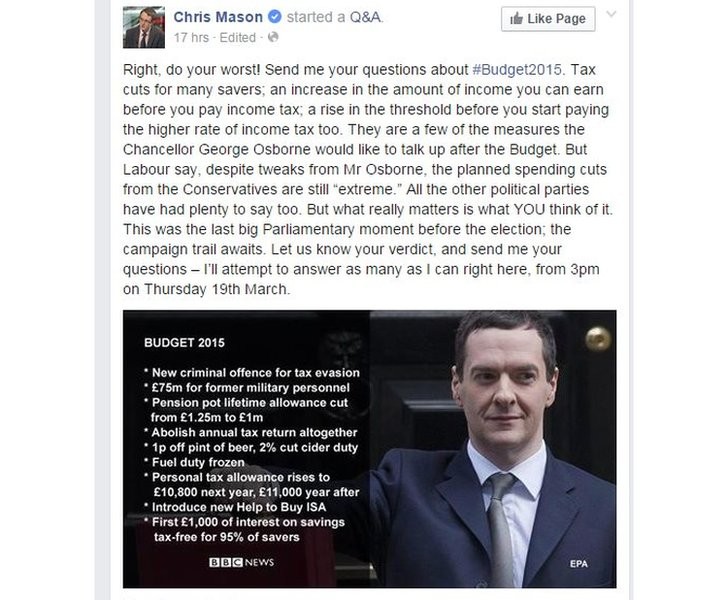BBC News Savings questions answered by an expert
Post on: 11 Июль, 2015 No Comment

Adrian Lowcock of BestInvest answers some of your savings questions
Savings and Investment
The interest rates most people can obtain on their savings accounts are lagging well behind inflation.
The average savings account offers only 0.84% interest a year, according to Bank of England statistics.
Meanwhile the average Isa (individual savings account) offers just 0.43%.
What can you do if you want to put some money away but protect it from inflation?
Adrian Lowcock of BestInvest answers a selection of your questions.
In order to best maximise the tax benefits of investing in a stocks and shares Isa, would I be right in thinking the best asset class to invest would be fixed-interest investments? With a minimum 10% tax payable on share dividends, I feel this has to be considered. Are there other things to invest in whilst maximising the Isa wrapper? Nick Bullock, Southampton.
The tax efficiency of the income earned in fixed-interest (ie bonds) is better than with shares and has been a tax efficient use of Isa's in the past.
However the impact of inflation on bonds can be very harmful so I would include equities in your Isa as they are good for growth and can offer a rising income.
The key is to use your Isa allowance and try and wrap up as much as possible in it to protect it from the taxman.
What would be the best and safest way to invest £100,000? And what sort of return would you expect on this? Warren, Caerphilly.
You can put up to £50,000 a year into a pension, depending on your earnings. However you will only be able to access this money at the age of 55 at the earliest.
The benefit of putting it in a pension is tax relief on the contributions going in.
You will receive up to 50% tax relief if you are paying income tax at the current highest rate.
Investing in an Isa is also sensible to protect future income and growth from tax; you can put up to £10,680 into a stocks and shares Isa. And you can still access the money should you need to.
The safest way to invest is to diversify so I would recommend unit trusts (you get an experienced manager).
I would then recommend a range of these, investing into different assets and countries.
If you are looking to invest £100,000, you can get advice without it costing any more than going it alone.
I am teaching finance to prisoners. I am trying to get them to feel the legal thrill of risk taking through financial investments on their savings when they are released. What kind of investment or saving products would you recommend. Also, what funds are considered to be high risk at the moment? Kirsty, Oxford.
I have to say that successful investing is not about the thrill of risk taking, but about reducing the risks whilst maximising returns.
Start Quote
I would not advocate unnecessary risk-taking for anyone
End Quote
I would suggest educating the prisoners on how to invest for their future.
I would recommend unit trusts as an investment vehicle. Isas are the best place to start building up their investments.
I would not advocate unnecessary risk taking for anyone.
I currently have around £3,000 in an Isa and I am looking to save around £200 to £300 per month. However, I do not wish to tie in to any long term investments and would like to keep my savings fairly liquid. Is there any better solution than an Isa? Lee Shinton, Dudley.
Not really, as cash Isas offer tax-free interest.
The need for liquidity means you will miss out on some of the more attractive rates on offer.
The best thing to do is keep your eye out for good rates of interest being offered by banks etc, as these do change and can improve.
Investments do not sound appropriate as they are for the medium to long term.
I am considering investing in a Santander Isa which invests mainly in government bonds but also banks. I am concerned that as interest rates rise, bond prices will fall and so give negative returns on this type of investment. Am I right? Ken Carew, Dumfries.
Government bonds do not yield very much and for the yields to rise, (which they are likely to do should interest rates rise) the price must fall.
Also, because they give a fixed return, inflation erodes the real return you receive. If you like bonds then consider index-linked ones and look toward corporate bonds over government bonds.
These have slightly more risk but better yields.
I am 31 and have recently moved back in with my mother to try and save a deposit for a house. I am currently putting £425 a month into an Isa which by my calculations will take me up to the maximum amount of cash you can save in a 12-month period. What are my other options as far as saving any extra I have left each month? Lucy Palmer, Nottingham.
The Isa allowance has now increased so you can top up your monthly cash Isa contributions to £445 as of this month.
Start Quote
The returns will be low but your money will be safe
End Quote
You could take out a stocks and shares Isa and invest in lower risk assets.
However investments are more suitable for the medium to long term, so if you would like to use the money in less than three years I would suggest holding it in cash and looking for the best rates around.
The returns will be low but your money will be safe and you can stay focused on owning your own home.
I recently received a lump sum of just over £100,000 as part of a pension. I am 60, continue to work part-time and do not need the lump sum for any particular purpose at the moment. Should I put this into a SIPP [self-invested personal pension], an income draw-down plan, or general savings? What are the tax implications? M Page, Blackpool.
There is a risk of falling foul of recycling rules so I would not recommend putting the money into a SIPP.
The best use would be Isa investments where you will be able to drawn down an income later, when needed, without incurring any additional tax on the interest earned.
Whilst it would take time to wrap all the money in an Isa you could take out an Isa on behalf of your partner or spouse, if you have one.

I am being made redundant on 31 May 2011 and with my redundancy and pension lump sum I expect to receive £80,000. After clearing all my outstanding debts I expect to have £50,000 to save. I was thinking about putting £10,000 in a cash and shares Isa but have no idea what to do with the other £40,000. I am quite happy to put this money away for two to five years if this would give me a higher return. Can you please give me any ideas? Joe, Dunfermline.
The Isa allowance is £10,680 so you can use that up.
If you have received a redundancy payment you could put this into a pension to get the tax relief, although the money invested must come from the redundancy payment and not your pension lump sum as there are rules against recycling pension money back into another pension.
Contribution into a pension will tie up some of the money but you will be able to take a tax-free lump sum and then draw an income from it later.
Pension contributions will be dependent on having an income in this tax year.
I had to take early medical retirement at the age of 54 and I am lucky enough to be in receipt of two occupational pensions. My query is that I have approximately £100,000 to invest for savings purposes, having already invested the maximum in Isas. Could you offer any investment advice that is reasonably low risk for this amount. Owen Baldock, Tonbridge.
You can still invest outside of your Isas and each year move some of your non-Isa investments into an Isa. This will help reduce the amount of tax payable on income later.
I have a cash Isa with Nationwide where the bonus has just expired. I had transferred in a balance and maximised my contributions for 2010-11. I recently inherited some money and invested my own and my wife’s 2011-12 Isa in a balanced managed-equity Isa account elsewhere. I would like some suggestions about how best to invest the £19,000 I have in my now measly Nationwide Champion Isa (post bonus) given that I cannot invest in any more Isas this (new) tax year. Mike, Bournemouth.
You can transfer the Nationwide Champion Isa into another cash Isa or into a stocks and shares Isa.
Start Quote
Sadly cash rates are just not great at the moment
End Quote
However it is important to note you cannot transfer it back from a stocks and shares Isa once you do this.
Returns on cash are pretty low at the moment so I would recommend the investment Isa.
However this will be riskier and you could get back less than you invested.
If you prefer to stick to cash, then look at the three-year bonds, which offer the most attractive rates without tying your money up for too long.
I have five years of pension contributions with the Ministry of Justice and four years of contributions with the teacher’s pension fund. Should I combine them into one pot as I am able to under the current regulations? I am 57 years old and should like to retire as soon as possible. Nik, Cardiff.
The pensions you have are state pensions and they tend to be very generous with the incomes index-linked for life. Transfers to consolidate are unlikely to be in your interests — I would keep them separate.
I am putting some funds aside to aid my daughter’s future education. She will need the funds in eight to 10 years’ time. With pitiful returns on cash savings accounts, is putting 70%+ of the funds in equities (mainly global funds) a sensible idea? Cliff, Salisbury.
I would suggest investing in a range of assets including equities, bonds, property and commodities. To me 70% in equities would be very adventurous.
I would suggest reducing the amount in equities to around 60% and investing with a combination of equity income and growth as this will reduce risk.
By now many will have built up cash Isa holdings of £50,000 and more. To be useful there should somewhere be an Isa that pays a decent rate (on a three or four year fix) and pays interest monthly to provide a top-up income for over-65s. Is there such an animal? Ralph, Durham.
Sadly cash rates are just not great at the moment so for three or four year fixed you are still looking at interest rates of about 4.2%, which does not keep up with inflation. Keep your eye out for changes as these may well change.
The opinions expressed are those of the author and are not held by the BBC unless specifically stated. The material is for general information only and does not constitute investment, tax, legal or other form of advice. You should not rely on this information to make (or refrain from making) any decisions. Links to external sites are for information only and do not constitute endorsement. Always obtain independent, professional advice for your own particular situation.














